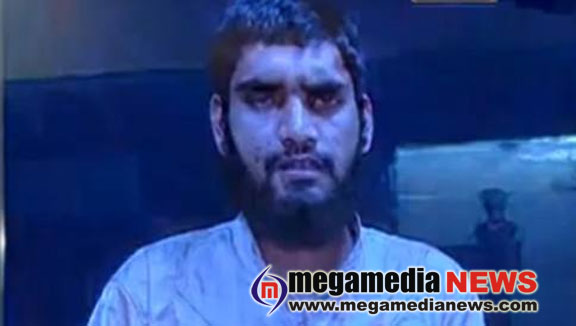NIA blames LeT for riots in Kashmir
9:10 PM, Wednesday, August 10th, 2016 New Delhi: Armed with the confessional statement of an alleged Pakistani LeT operative, NIA today blamed the banned terror organisation for fuelling the continuing unrest in Kashmir.
New Delhi: Armed with the confessional statement of an alleged Pakistani LeT operative, NIA today blamed the banned terror organisation for fuelling the continuing unrest in Kashmir.
The anti-terror probe agency also said it is gathering further evidence regarding the role of Pakistan-based Lashkar-e-Taiba in the ongoing turbulence in the Valley for the last 33 days.
The National Investigation Agency (NIA) said the questioning of Pakistani terrorist Bahadur Ali, who was captured recently in North Kashmir, had thrown up leads showing involvement of LeT in aggravating the situation in the Valley.
The NIA’s comments came a day after India handed over a “strong demarche” to Pakistan over its continued support to cross-border terrorism in India.
“NIA is further investigating the role of Lashkar in the present unrest in Kashmir,” Inspector General of NIA Sanjeev Singh told reporters here. NIA also showed to the media a video of Ali alias Saifullah, a Punjabi-speaking man, talking about his family, the time he spent in the terror outfit and his crossing over to the Indian side of the border. He was arrested on July 25 by the state police from a village in Handwara after he had managed to give Army the slip at the Line of Control in June this year.
Ali told his interrogators that he was informed by his handlers from a control room code-named ‘Alpha-3’, believed to located at a high altitude somewhere in PoK, about the unrest in the Valley following the killing of Burhan Wani, a Hizbul Mujahideen militant on July 8.
His handlers from the control room asked him to throw grenades at the security forces and also informed him that other cadres of the terror group had managed to sneak into the Valley, mingled with protesters at other places and were fuelling tension in the Valley.
This is for the first time that NIA has shown a video statement of a captured militant. Pakistan had earlier this year shown a video statement of Kulbhushan Yadav, an Indian national arrested in Balochistan in March over charges of spying for the Indian intelligence agency.
Indicating continued encouragement and support of Pakistani military regulars in pushing militants into the Kashmir valley, Singh said the arrested Lashkar terrorist had been promised cover fire when attempting to infiltrate into Northern Kashmir.
He said the terrorists were communicating with ‘Alpha-3’ on Japanese I-com radio sets which had been modified to cover a vast range. “Highly technically qualified people have done the modification of the radio set and also trained these militants including Bahadur Ali,” Singh said.
About the persons who could be manning ‘Alpha-3’, Singh said it was not possible for a terror group or ordinary people to have such a communication set up which covers a wide range of area and can hack into defence networks.
“NIA is collecting evidence that will stand international judicial scrutiny and will share it with Pakistan for further action through proper channel,” he said.
Giving details of Ali’s arrest, Singh said it was possible with the help of local people who informed the police about the suspicious movement of a man in Yahama village.
Upon interrogation, Ali gave away his identity and led the police party to a hideout where AK-47, radio sets, GPS, compass and rubberised maps which showed grid-reference of places during infiltration were found. He had been trained at Manshera, Aksa and Muzaffarabad.
Based on his inputs, security forces could manage to neutralise four militants in North Kashmir.
21-year-old Ali, who has seven sisters and a brother, was recruited in 2008-09 and was in charge of collecting funds for the LeT in Raiwind area of Lahore to which he belonged. He later underwent training modules– Daur-e-Aam (basic training) and Daur-e-Khas (specialised training done in Afghanistan)– before being launched into India from Mandakuli, close to LoC on PoK side.
Ali told his interrogators that there were 30-50 persons in the training camps each time he went there and some ‘Major Saheb’ or ‘Captain Saheb’, believed to be regulars from Pakistani army, often used to visit these camps.
He said he along with others was shown the route on Google maps using LCD TV and was also taught code language for communicating with the control centre.
Ali, according to the Singh, told the interrogators that Lashkar commander from Muzzafrabad controls the movement of militants in India.
He said LeT chief Hafiz Saeed had led ‘gaybana namaz-e-jinaja’ (funeral prayers held in absentia) for Abu Qassim, a top Lashkar commander killed in an encounter last year.
Simillar Posts
Warning: count(): Parameter must be an array or an object that implements Countable in /home/megamcaq/public_html/wp-content/plugins/post-plugin-library/common_functions.php on line 357
- None Found
Leave a Reply
© Copyright 2008 www.megamedianews.com All Rights Reserved. Privacy Policy








 Posted in
Posted in  Tags:
Tags: 



